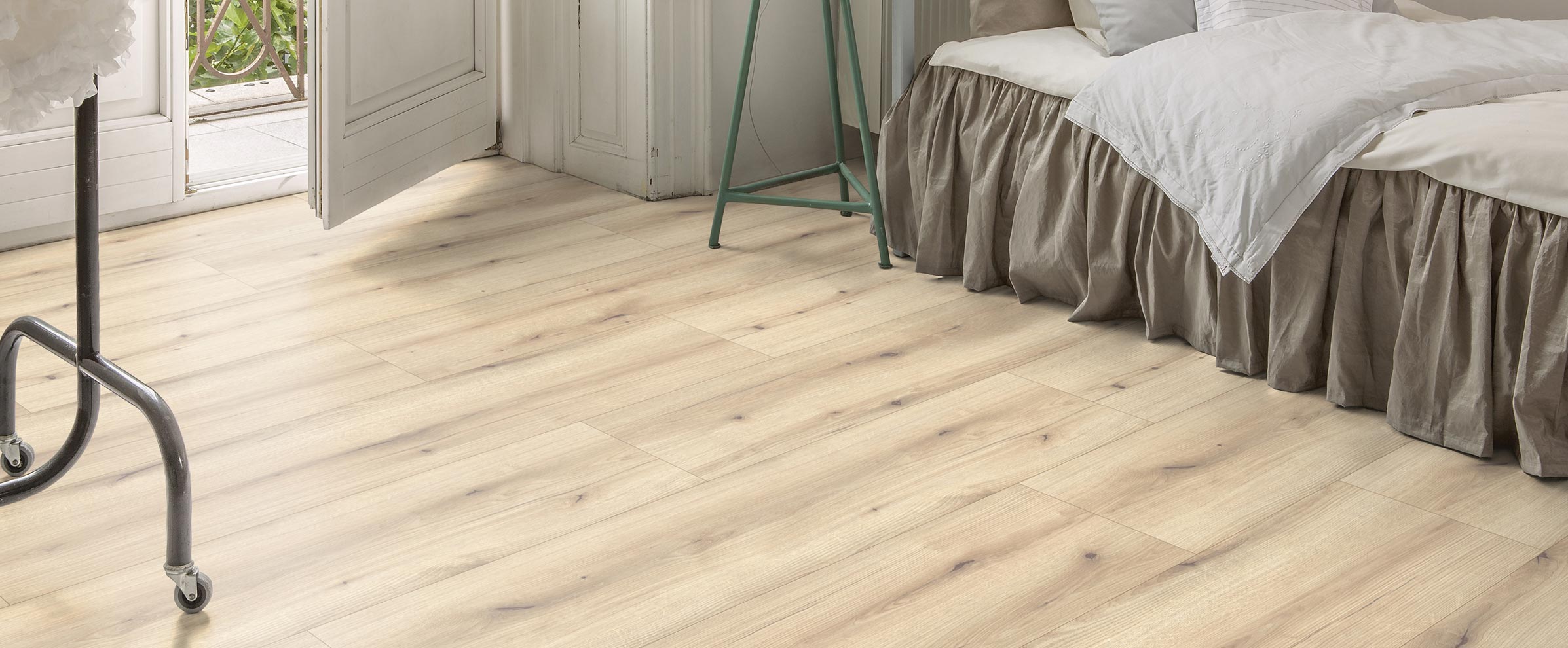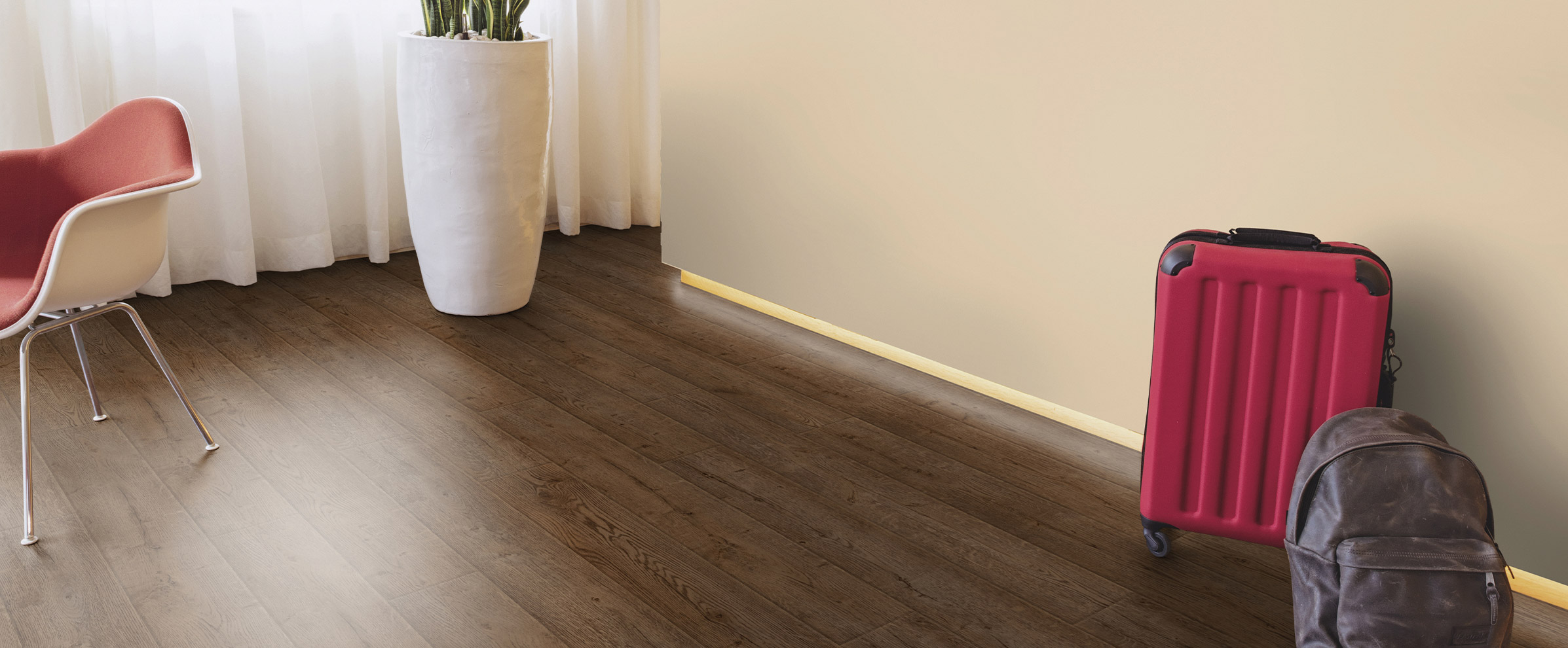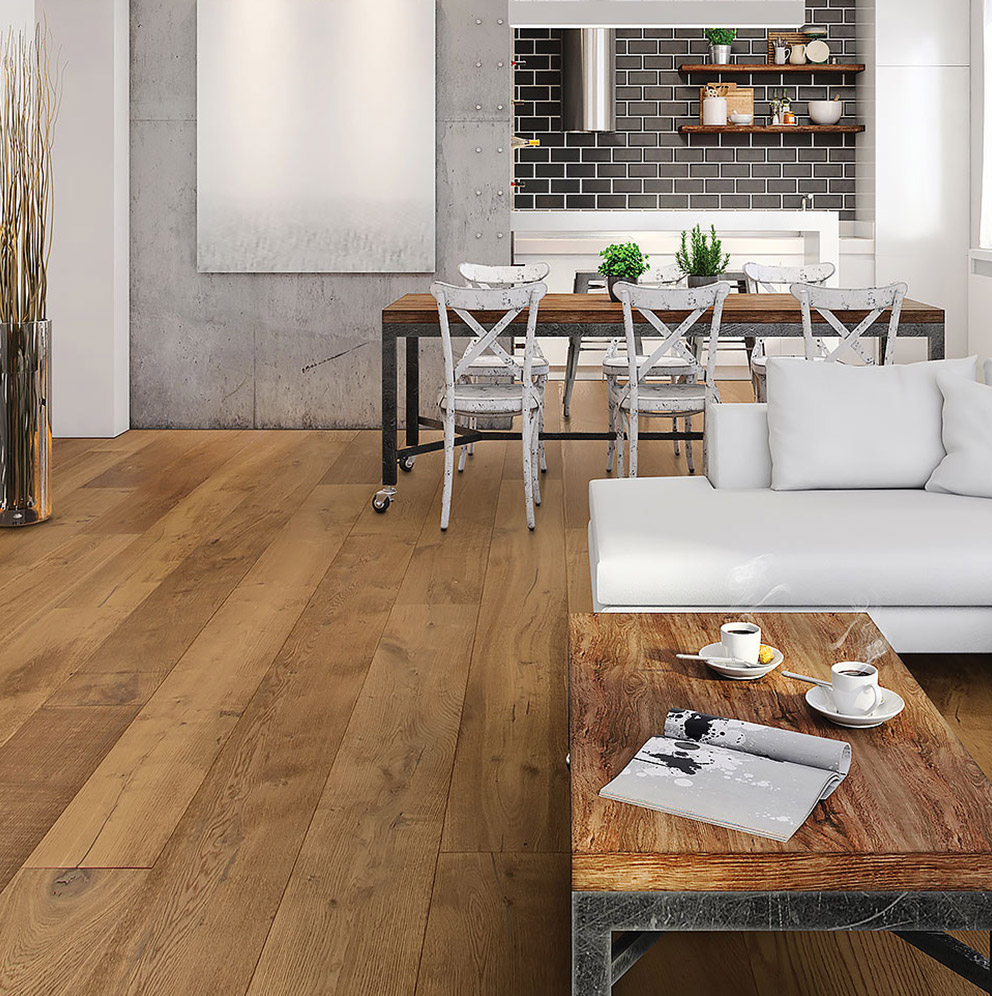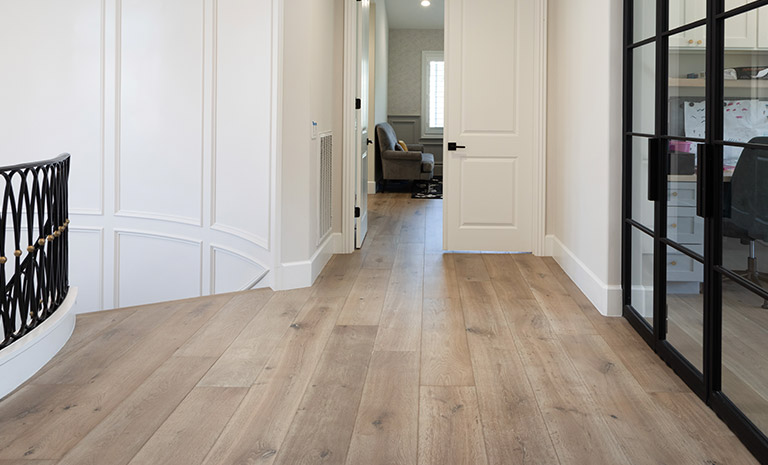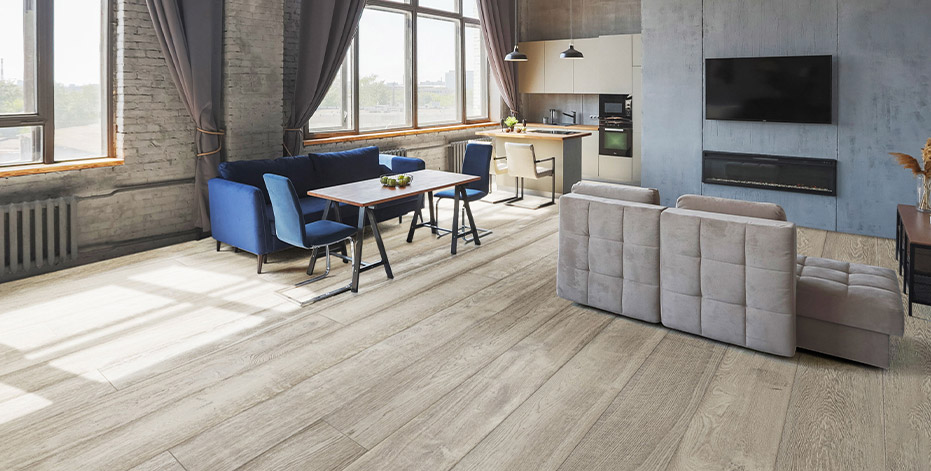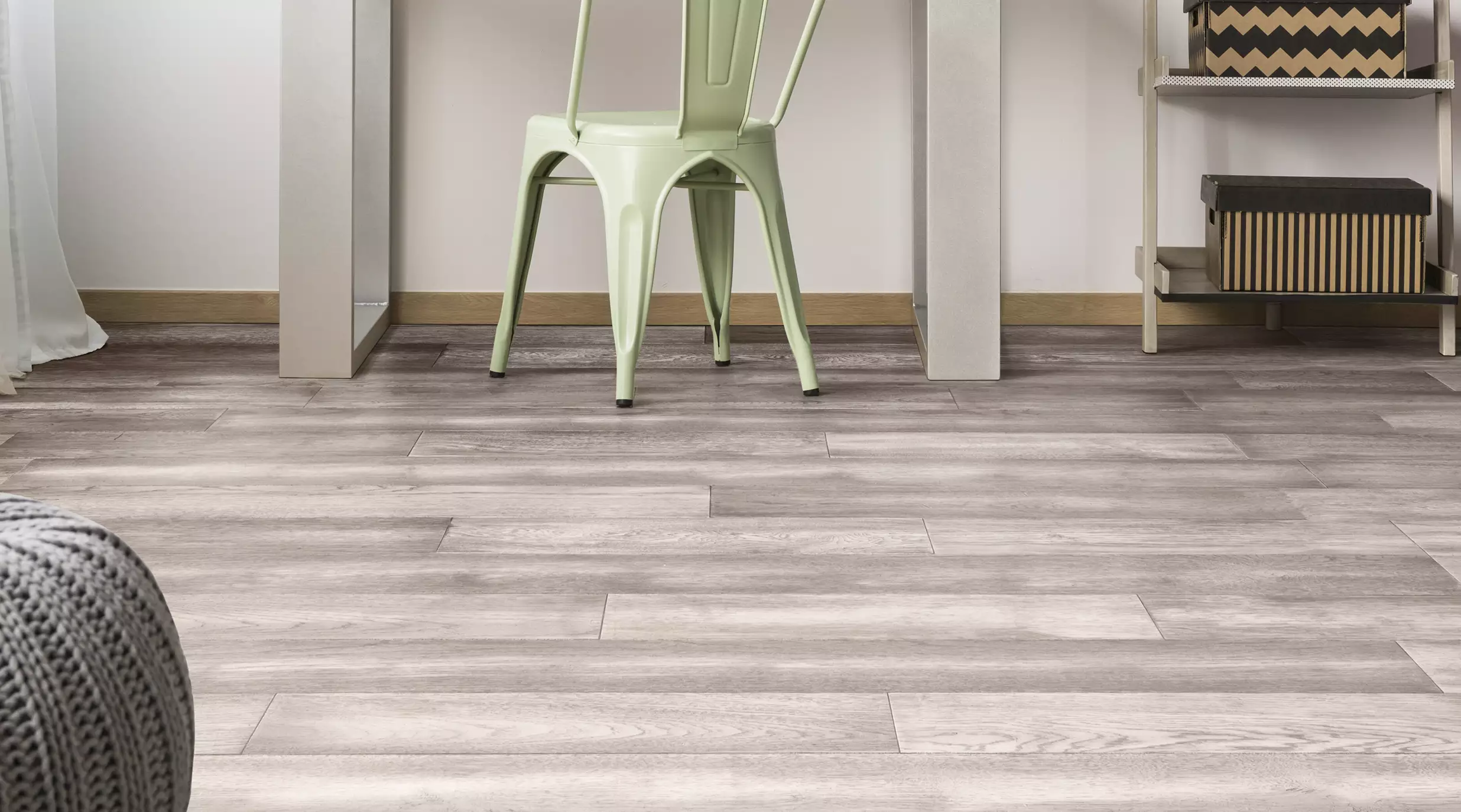
Engineered wood floors offer a lot in terms of benefits, but as with any source of wood – moisture content management is important for optimal results.
It All Comes Down to Balance
First, we must inform you that ALL woods hold moisture content. The difference is that engineered hardwood floors are built in a manner that allows them to manage moisture easier. This doesn’t mean they are free from problems when rapid swings in moisture content arise.
- When relative humidity rises, then woods begin to absorb more moisture. This occurs most during summer.
- When relative humidity drops, then the wood releases the moisture content it was holding back into the air. This occurs most during winter.
It’s a constant cycle – a cycle that depends on reaching equilibrium. Equilibrium is often met when relative humidity levels fall anywhere between 30%-60% depending on manufacturers.
For any hardwood floor to reach its equilibrium, the moisture content contained within the wood must balance out the relative humidity of the air.
If relative humidity levels are too low, then a common problem that may occur with word floors is the issue of “cupping”, or when corners lift. The issue can be fixed if you get a control on humidity levels – bringing them back down to an appropriate measure. Cracking may also occur if the air is too dry (i.e. relative humidity is too low).
Humidity levels that are too high come with their own set of possible issues as well, such as expansion of the wood. Certain actions within the house may cause indoor humidity to rise. Some of the most popular include running a dryer, stove, or shower. Other appliances such as humidifiers will affect this as well.
Various factors such as the location you live in, the appliances you are running, whether or not you have an indoor humidification system, the type of hardwood you have (including what species of wood), installation process, and other aspect will all have an effect on the performance of the floor.
What Should You Do?
Chances are, you aren’t an expert in hardwood flooring and so most of this may not make much sense to you.
However, by having a simple understanding of the product you paid for, there may be a time where you understand what may be occurring if you notice a slight change on your engineered hardwood floors – in turn, prompting you to take action.
Pro Tip: It is possible to check moisture levels using a tool such as a “Wagner Meter”, which is a commonly accepted moisture meter. It won’t offer much value unless you are experienced/professional.



